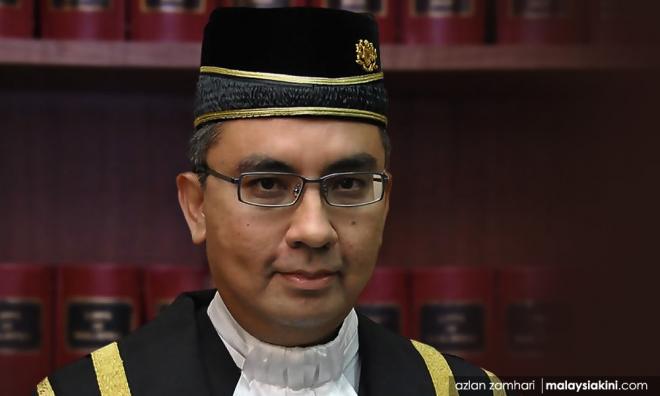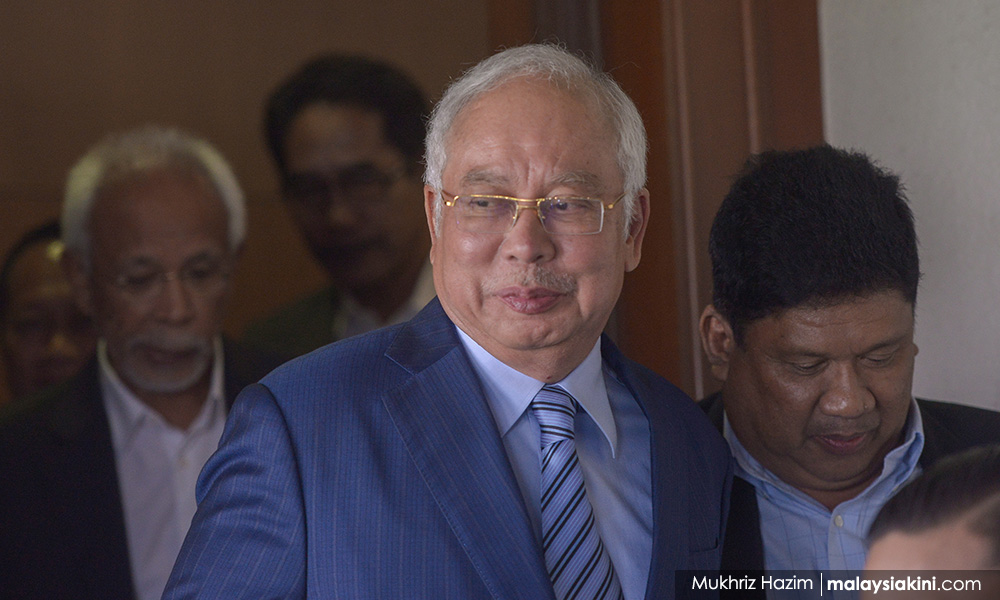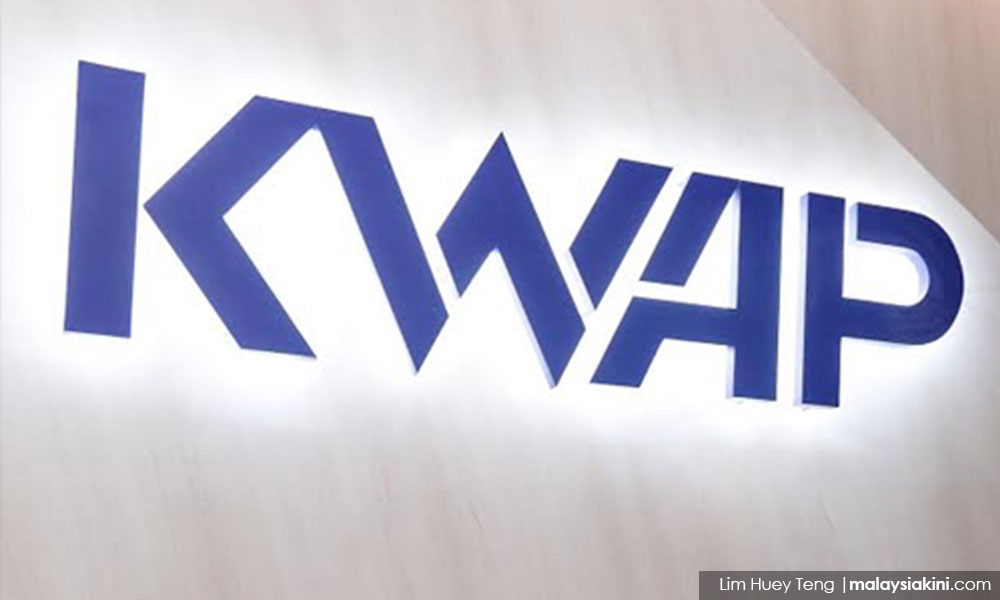
On July 28, Kuala Lumpur High Court judge Mohd Nazlan Mohd Ghazali (above) took two hours to deliver his judgment which convicted former prime minister Najib Abdul Razak.
Najib was found guilty of abuse of power, three counts of criminal breach of trust and three counts of money laundering by pocketing RM42 million from the Finance Ministry-owned firm SRC International Sdn Bhd between 2014 and 2015.
He was the finance minister and prime minister at the material time.
Although Nazlan's entire written judgment - a crucial document needed for Najib’s appeal - has yet to be released, "extracts" of the judgment have been shared with the lawyers involved in the case.
The judgment mostly outlined Nazlan's deliberations on points raised by the defence team, as his reasons for convicting Najib were already laid out at the end of the prosecution's case in November 2019.
Below is a summary of the key issues raised by the judge on Tuesday.
It doesn’t matter what Apandi Ali said in 2016
Defence witnesses former DPP Dzukifli Ahmad and former attorney-general Apandi Ali attempted to cast doubts on the prosecution’s case by testifying that the latter had cleared the accused of wrongdoing in relation to SRC International in January 2016.
Nazlan noted that since then, the MACC had recorded statements from 76 new witnesses and taken more statements from existing witnesses.
"Even though (Apandi) and (Dzulkifli) decided that the investigations had by then been completed based on what had been gathered by the MACC as recorded in the investigation papers, for the purpose of this instant or any trial, any pronouncement of this court must be based on evidence produced to the court trying the case.
"To put it simply, the opinion of (Apandi) and (Dzukifli) cannot replace the evidence before this court to arrive at its decision," said the judge.
In other words, whether Apandi cleared Najib or not was deemed irrelevant due to new evidence.
Najib's request, or order?
Nazlan said Najib's involvement in SRC International began with SRC's letter on Jun 3, 2011, requesting approval for the company to obtain an RM3.95 billion loan from Retirement Fund Incorporated (KWAP).

Eventually, that application was approved, with a reduced amount of RM2 billion. SRC subsequently applied for another RM2 billion loan and this was also approved. These loans were only approved after the cabinet, chaired by Najib, issued guarantees.
Nazlan ruled Najib had influenced Treasury secretary-general Wan Abdul Aziz Wan Abdullah (prosecution witness number 45) and then KWAP CEO Azian Mohd Noh (PW38) to secure the compliance by KWAP's investment panel in approving the loans.
Najib's request to Wan Abdul Aziz (his subordinate) was recorded in the minutes of the investment panel's meeting for the first RM2 billion loan, noted Nazlan.
"In my view, if it was not the case of PW45 and PW38 obeying the instructions of the prime minister and finance minister (Najib), it is manifest that they considered the influence of the accused to be sufficiently predominant so as to ensure that the investment panel was also apprised of the stance of the accused on the same," ruled the judge.
In view of this, and several other factors, the judge ruled that the accused's argument that he was merely making a request and that due process must follow were therefore invalid.
Najib was giver and receiver
Nazlan also noted Najib headed the government and participated in cabinet meetings which guaranteed RM4 billion in financing to SRC International which "directly" caused the accused to be in a position of access to funds in the company.
"The approvals by the cabinet benefited SRC which was controlled by the accused himself.
"There is no necessity for there to be any arrangement between the accused and any other party for gratification to be received to prove the presence of criminal intention," said the judge.
Najib didn't show concern for SRC
Nazlan ruled that Najib didn't show any concern for how SRC, a state-owned company under his ministry, used the RM4 billion loaned from KWAP.

There was no evidence that Najib was concerned as to whether SRC fulfilled its stated goals of promoting national energy strategic initiatives and there was no action to recover the funds frozen by Swiss authorities.
"It is therefore very puzzling and is instead much more consistent with the conduct of one who did not want the problem resolved given his own complicity in the unlawful transfer of the funds in the first place, as evidenced in the shareholder minutes of MOF Inc notwithstanding his claim that these minutes were not genuine," he said.
When SRC was facing financial difficulties by end-2015, Nazlan said Najib never summoned the company's directors for an explanation despite being advisor emeritus and having vast powers over the company as stated in the company's memorandum and articles of association.
The judge said the accused, under cross-examination, failed to provide a clear answer on whether he was satisfied with SRC's progress after drawing down RM2 billion from KWAP.
"I find this hard to fathom when the source of the funding was the pensions fund and the sum involved was extremely large by any measure," he said.
Was AmBank Islamic complicit?
On the defence's assertion that AmBank Islamic officers were complicit in a scam to defraud SRC, the judge noted that neither SRC nor its subsidiary Gandingan Mentari Sdn Bhd took any action against the bank.
He also ruled that Nik Faisal Ariff Kamil was the mandate holder for SRC's and Najib's accounts in question.
"Although (eventually) removed as the CEO of SRC for governance issues, Nik Faisal continued to be a member of the board of directors and more importantly, remained a signatory of the SRC and Gandingan Mentari funds as well as the mandate holder of the accused’s personal accounts.
"The inference is that his signature was necessary to effect the transfer of funds including as directed by the accused such as this transfer of RM42 million into the accused’s accounts," said the judge.

Najib's testimony had confirmed that fugitive businessperson Low Taek Jho, also known as Jho Low, Najib's former principal private secretary Azlin Alias and Nik Faisal did have contact with the accused on his accounts, said the judge.
"The inference is therefore inescapable as it is overwhelming, that they or any one of them must have informed the accused about the balances of the accounts, including the remittance of RM42 million into two of the accounts so that the accused would be well informed on his issuance of personal cheques out of those accounts," said the judge.
When Najib knew it was SRC money, he didn't return it
Nazlan said Najib eventually knew that the RM42 million originated from SRC after being informed by Urusan Ihsan Perdana Sdn Bhd head Shamsul Anwar Sulaiman (PW37) and Yayasan Rakyat 1Malaysia (YR1M) CEO Ung Su Ling (PW49).
However, Najib did not return the money on grounds that investigations were pending.
"This is unconvincing since given the doubts, he should have at least offered to set RM42 million aside for a possible return to SRC or as the authorities might determine. That did not happen.
"I must stress that by then, the accused was told that the funds were SRC's. At that stage, even if one were to believe his story that he thought the funds in his accounts came from the Arab donations, after being told that it originated from SRC, the accused could no longer maintain that it came from the Arab donations.
"He ought, therefore, to have stated his intention to return the RM42 million to SRC. It is worthy of emphasis that as the finance minister he was heading MOF Inc., the legal owner of SRC. His failure to articulate an intention to repay the same, let alone actually returning the RM42 million, is difficult to countenance," said the judge.
All roads lead to Riyadh?
The judge noted that Najib's defence relied heavily on his belief that the money he was spending was from foreign remittance from King Abdullah Abdulaziz Al Saud of Saudi Arabia.
"There are many problems with the accused's testimony. First, the accused did not say that he directly heard from or was personally informed by the Saudi monarch of the cash donation.
"Secondly, there was no evidence of the accused attempting to verify this intention attributed to King Abdullah with anyone. Not with the king directly, nor with any of the government officials who could have easily checked to verify the information for the prime minister.
"There was, thirdly, no evidence if the intended donation would be accompanied by any conditions of use, either. None whatsoever. The accused merely took the word of Jho Low," said the judge.

Additionally, the evidence, said the judge, showed that the money could not have been the so-called donation by the way it was deposited into Najib's accounts.
"This is because the funds would suddenly appear - as if on fortunate episodes of fortuity and serendipity - in the personal accounts of the accused at the exact moment it was needed, usually when the account balance was very low.
"It is not open to dispute that the deposit of funds into the accounts of the accused had the real and immediate effect of regularising the said accounts exactly when it was most needed.
"Because of that, they could not have possibly come from King Abdullah," said the judge.
'Wilful blindness'
The evidence, said Nazlan, showed that Najib did not ensure that the RM42 million received were not proceeds of unlawful activity nor that the monies were lawful.
Nazlan said he drew the conclusion that Najib deliberately chose not to question or probe what "plainly" required verification so that he could deny knowledge.
"This is willful blindness," said the judge.
Nazlan said it was "patently obvious" to the accused that the funds could not have originated from King Abdullah yet no steps were taken to verify the matter.
"The accused’s defence that he honestly believed that the funds remitted into his accounts were donations from King Abdullah is nothing but an implausible concoction," said the judge. - Mkini
No comments:
Post a Comment
Note: Only a member of this blog may post a comment.